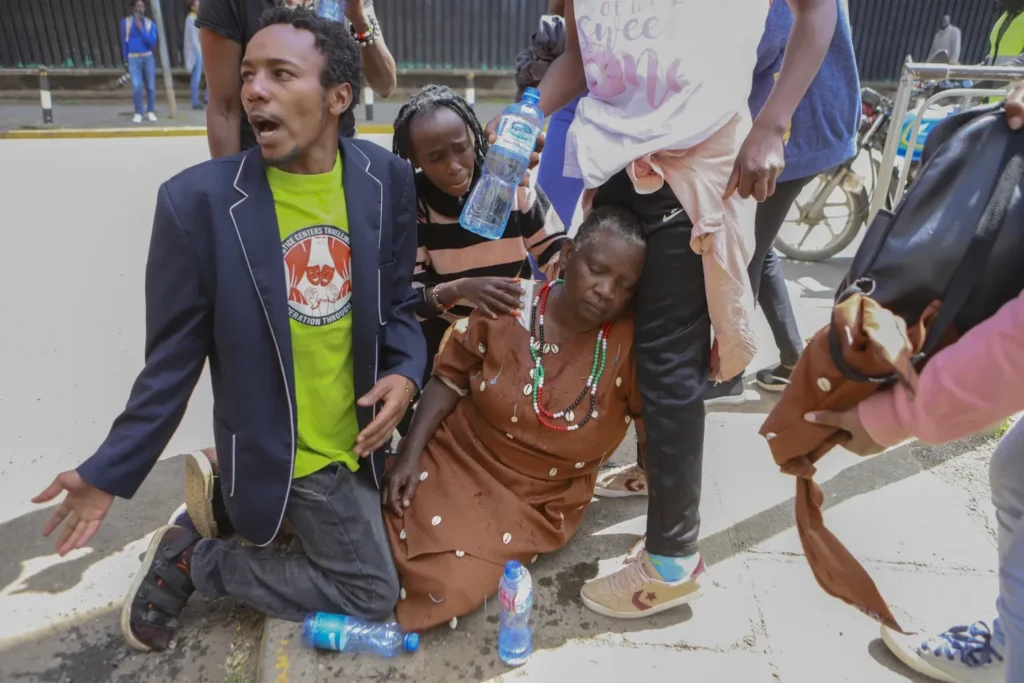In Summary
- Over 200 protesters arrested in Nairobi amid demonstrations against new tax proposals.
- Ongoing protests expected to continue, including a sit-down outside parliament despite police intervention with tear gas.
- Significant public backlash against several tax increases proposed in the upcoming finance bill, with some measures already amended following public outcry.
- Civil and legal groups, including Amnesty Kenya and the Kenya Law Society, are voicing strong opposition to the treatment of protesters and the proposed tax changes.
- President William Ruto defends the need for financial self-sustainability through higher taxes, while opposition leaders Raila Odinga and Kalonzo Musyoka call for the protection of the economically vulnerable.
DETAILS
Nairobi, Kenya– In Nairobi, Kenya’s capital, a wave of protests against proposed tax increases has led to the arrest of over 200 demonstrators, sparking widespread concerns over civil liberties and economic pressure on citizens. Nairobi Police Commander Adamson Bungei confirmed that 210 protesters were detained for participating in unapproved protests, despite the constitutional guarantee of peaceful assembly, contingent upon prior notification to the police.
The ongoing unrest, marked by police deploying tear gas against hundreds of demonstrators, has disrupted local businesses and heightened tensions across the city. Protesters, including lawyer Wanjohi Gachie, argue that the proposed taxes in the finance bill, due to be debated in parliament, unfairly target the general populace, including those in law enforcement.
Following public backlash, a morning meeting between President William Ruto and ruling party lawmakers resulted in the withdrawal of some contentious tax proposals, including a 16% value-added tax on bread. However, the bill still includes revised taxes aimed at environmental protection and motor vehicle insurance, which remain points of contention.
Human rights organizations like Amnesty Kenya and the Kenya Law Society have criticized the arrests and the harsh police response, demanding the immediate release of all detained protesters and observers. President Ruto, defending the tax hikes last month, emphasized the need for Kenya to be financially self-sustaining and to live within its means, suggesting that these measures are necessary to enhance national revenue.
Opposition leaders, including Raila Odinga and Kalonzo Musyoka, have vehemently opposed the bill, describing it as detrimental to the economic well-being of the country’s poorer citizens and threatening to resume weekly protests if the bill passes without significant amendments. The debate in parliament is set to commence shortly, with a critical vote expected next Monday.
This escalating situation reflects broader issues of governance, economic policy, and public trust in Kenya, as leaders grapple with balancing fiscal responsibility with the socio-economic realities facing their constituents.
